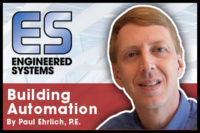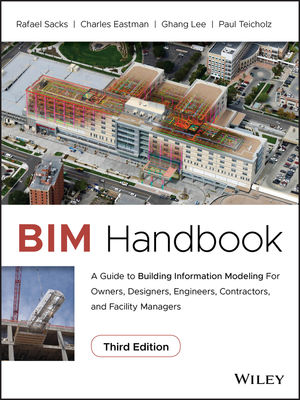Our large building automation community is a small global community of highly specialized folks. As we move to Web-based and start towards the vortex of technology convergence, we must realize that not only will our technology be affected, but our community will radically change as well.
Although this is an exciting thought, it is also a scary one. We will likely lose our elite technological position as we are drawn into the convergence vortex. We will become another supplier of data services and interactions with our only claim of difference being the dynamic real-time nature of our data. The loss of this elite position will be replaced with an incredible increase in visibility for our industry. The transition forced by convergence, which will see us go from being suppliers of hardware to becoming software companies, is vividly pointed out in Hartman's views in his portion of the supplement.
Hardware as Commodity
As our industry follows the computer industry model in the acceptance of several standards, we will start migrating towards the concept that hardware is simply a commodity. Our real value as an industry in the future will be the ability to customize our dynamic presentations and interactions to better integrate into our client's enterprise.These concepts will radically change our business community. This shift will likely see the unloading of the installation portion of our business to the electrical/data installers. The migration of our hardware products will follow the personal computer end device market by creating low cost, high functionality, multiple-use devices that will evolve as commodities. This is all possible because of standards. Once market share is captured (likely by new manufacturers from the computer industry), the small numbers and high cost of the manufacture of specialized control devices will no longer be viable.
This may seem like a bold statement, but I think if you view it in a 5-to 10-year future window, you will agree. This is both bad and good news. The bad and good news is that our industry will continue to under go radical change for the foreseeable future. It will be a scary time for those not willing to change, but opportunities will abound for those ready to move on.
A Fast-paced Future
As we move from supplying hardware to providing software and virtual services, our community will change rapidly. The new community will include new players with Web skills. This community convergence will renew our industry and move us forward; however, we must not lose our valuable experience as an industry. We need to educate our existing elite practitioners in these new ways so that they can shift their years of experience onto our new software models. The cross-pollination of this expertise onto the Web will determine the success of our new community.Virtual online relationships will be a large part of the new community and will be assembled as required for particular projects and services. The success of the new companies will be directly related to their ability to assemble teams of the correct online identities.
As new relationships with building owners evolve, our ability to provide cost-effective optimization and support services online will win us market share. Access to our assembly of online individuals will be our added value. Our collection of expertise in that we are able to reach out and utilize, will become a tangible asset. Our strengths will evolve into managing the complex building services requirements for the owners' enterprises.
Keep in mind the radical changes that will be occurring in our community will also be occurring in all of the business communities that we interact with, and this will create a moving target. The reassembly of our function, capabilities, and reach is the catalyst for change. Selling to a market that your very presence changes is complex.
Marketers must be members of our new community, but they cannot be the old glossy-paper-for-print type marketers; they must be wise in the ways of the Web. I am not talking about the hypers who created the vapor that fueled the dotcom rise and crash; I am talking about marketers experienced in how the Web-based ways work and how to sell our new community. ES




